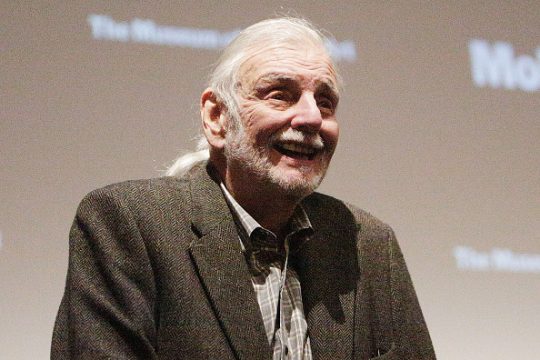Update: Vic, JVL, and I talked about Romero on this week's mini-ep of the Substandard, which you can listen to here:
/update, original post below
George Romero, the progenitor of the modern zombie whose offspring have completely captured popular culture, died after a brief bout with lung cancer this weekend.
It's hard to overstate his influence. While Night of the Living Dead wasn't the first zombie movie, it was the first zombie movie to feature the undead as we commonly understand them today: reanimated corpses that feed on human flesh and can only be stopped by destroying the brains of the infected. Considering the ubiquity of the monster on screens large and small, you'd think these were age-old horrors rustling in the echoes of societies long passed—like ghosts or goblins or some similar ghoul. Nope: the zombie is a relatively modern horror.
Romero was more than just the auteur of the undead of course—The Crazies (1973) was a classic horror tale playing off Vietnam-era cynicism toward the military and the government, while Monkey Shines (1988) is a slightly campy yet terrifying look at the danger of unbridled scientific progress. And his most significant contribution to the world of filmmaking may have been showing the world that independent films can not only be made, they can succeed beyond anyone's wildest expectations. Romero was also, sadly, something of a cautionary tale, a creator who lost the rights to his original work thanks to some bad funding deals.
But Romero is best remembered, and rightfully so, for his movies about the undead—and the way he combined politics and ideology with terror to create lasting works of art. Night of the Living Dead was always an angry, ideological film (Romero said of the film, "I thought it was about revolution ... We were '60s guys and…sort of pissed off that the '60s revolution didn’t work. Peace and Love didn’t solve anything in the end") but its largest resonance came almost accidentally, with the casting of an African-American lead who ends the film being shot by a band of rednecks after being mistaken for a zombie. Coming out as it did in 1968—the year Martin Luther King, Jr. and Bobby Kennedy were both assassinated—one can't help but see the film in a different light with a black actor in that part than a white one.
Dawn of the Dead, of course, served as a critique of American consumerism, a reminder that "stuff" and the desire to own it, to protect it, will always triumph over the need to come together. I think my favorite of these films is Day of the Dead, however. A viciously anti-military treatise that savagely combines dark humor and the brilliant special effects of Tom Savini, Day of the Dead proves you don't have to be dour and dull while scoring your ideological points.
Romero's second zombie trilogy—Land of the Dead, Diary of the Dead, and Survival of the Dead—didn't have the same kind of impact (though 2005's Land of the Dead, which features Dennis Hopper as a fabulously wealthy real estate magnate serving as the leader of an enclave of humanity, feels oddly resonant these days for some strange reason). Never one for subtlety, Romero was a bit too on the nose sometimes, as when fireworks are used in Land of the Dead to distract the brainless zombies. ("GET IT?" the film practically seems to shout.) But there were still flashes of the old genius in these films, moments of clarity about the danger of our media landscape and the inability of man to set aside their squabbles.
Rest in peace, Mr. Romero.
